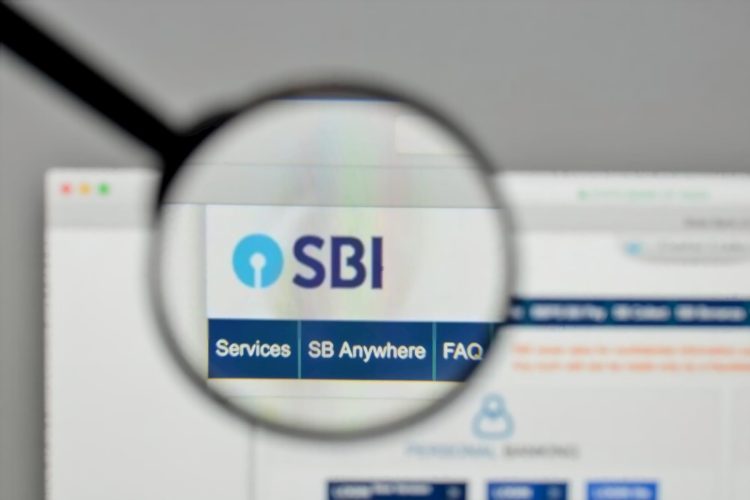Understanding the Significance of CIF Number in SBI Banking

In the dynamic landscape of modern banking, technology plays a pivotal role in enhancing customer experience and streamlining financial transactions. The Customer Information File (CIF) number is a critical component in this digital era, particularly for State Bank of India (SBI), one of the largest and most prominent banks in the country. This article delves into the intricacies of the CIF number, its significance, and how it facilitates a seamless banking experience for SBI customers.
What is CIF Number?
The Customer Information File (CIF) is a unique identification number assigned to each account holder by a bank. In the context of SBI, the CIF number is a crucial alphanumeric code that encapsulates a plethora of information related to the account holder. This information includes personal details, account details, transaction history, and other essential data that aids the bank in efficiently managing customer accounts.
Significance of CIF Number:
- Identification and Authentication: The CIF number serves as a robust tool for the identification and authentication of SBI customers. In a vast customer base, having a unique CIF number ensures that each account holder is distinctively recognized by the bank’s system, mitigating the risk of errors or confusion.
- Unified Customer Database: SBI, being a colossal banking institution, manages an extensive database of customers. The CIF number acts as a link that ties together all accounts and services associated with a particular customer. This centralized approach enables the bank to have a comprehensive view of the customer’s financial relationship with the institution.
- Streamlining Operations: The CIF number streamlines various banking operations, such as updating customer information, linking multiple accounts, and monitoring transaction history. This efficiency is particularly essential for SBI, given its vast customer base and the myriad services it offers.
- Quick Retrieval of Information: Retrieving customer information promptly is critical for providing efficient customer service. The CIF number facilitates the quick retrieval of essential details, allowing SBI representatives to address customer queries and concerns with precision.
- Facilitating Online Banking: In the era of digital banking, CIF numbers play a pivotal role in facilitating online transactions. Whether it’s internet banking, mobile banking, or other digital services, the CIF number acts as the key identifier, ensuring secure and seamless transactions.
- Account Linkage: Many customers have multiple accounts with SBI, such as savings accounts, fixed deposits, or loans. The CIF number acts as a thread that links all these accounts, providing a holistic overview of the customer’s financial portfolio.
- Enhanced Security: The uniqueness of CIF numbers enhances the security of customer accounts. It reduces the likelihood of unauthorized access and ensures that only the rightful account holder or authorized personnel can make changes or transactions related to the account.
- Credit History and Risk Assessment: For customers availing credit facilities like loans or credit cards, the CIF number becomes instrumental in assessing credit history and risk. This comprehensive evaluation helps the bank make informed decisions about lending, ensuring responsible and secure financial practices.
Conclusion:
In the ever-evolving landscape of banking, the CIF number stands as a cornerstone for customer management and operational efficiency, especially within the realm of State Bank of India. It goes beyond being just a random alphanumeric code; it is a key that unlocks a wealth of information about the account holder. As SBI continues to embrace digital advancements, the CIF number will likely play an even more crucial role in ensuring a secure, streamlined, and customer-centric banking experience. Understanding its significance empowers customers to navigate the banking landscape with
Frequently Asked Questions (FAQs) on CIF Number for SBI
- What is a CIF number? Answer: A CIF (Customer Information File) number is a unique alphanumeric code assigned by State Bank of India (SBI) to each account holder. It contains essential information about the customer, including personal details, account information, and transaction history.
- How is the CIF number different from the account number? Answer: While the account number identifies a specific bank account, the CIF number is a comprehensive code that encompasses information about the account holder’s relationship with the bank. It links multiple accounts, making it a unified identifier for all services associated with a customer.
- Where can I find my CIF number in SBI? Answer: Your CIF number is typically mentioned on your bank passbook, especially on the first page. It is also available on your account statement. If you are an internet banking user, you can find it online by logging into your SBI account.
- Is the CIF number the same for all accounts under my name in SBI? Answer: Yes, the CIF number remains the same for all accounts held by an individual in SBI. It acts as a common thread linking various accounts, providing a consolidated view of the customer’s relationship with the bank.
- Can I change my CIF number? Answer: No, the CIF number is a unique identifier and cannot be changed or modified. It is a permanent code assigned to an account holder by the bank.
- What information does the CIF number contain? Answer: The CIF number contains a wealth of information, including personal details, account information, nominee details, and transaction history. It serves as a comprehensive record of the customer’s interactions with the bank.
- How is the CIF number used in online banking? Answer: The CIF number is crucial for online banking activities. It serves as a primary identifier for logging into internet banking, making online transactions, and accessing various digital services provided by SBI.
- Can I share my CIF number with others? Answer: While the CIF number is not as sensitive as passwords or PINs, it is advisable to keep it confidential. Avoid sharing it with unauthorized individuals to prevent any potential misuse of your account information.
- Is the CIF number required for every transaction? Answer: No, the CIF number is not required for routine transactions. It is primarily used for account management, linking multiple accounts, and accessing certain online banking features. For regular transactions, your account number and other credentials are sufficient.
- What should I do if I forget my CIF number? Answer: If you forget your CIF number, you can find it on your passbook, account statement, or through internet banking. You can also visit your SBI branch






